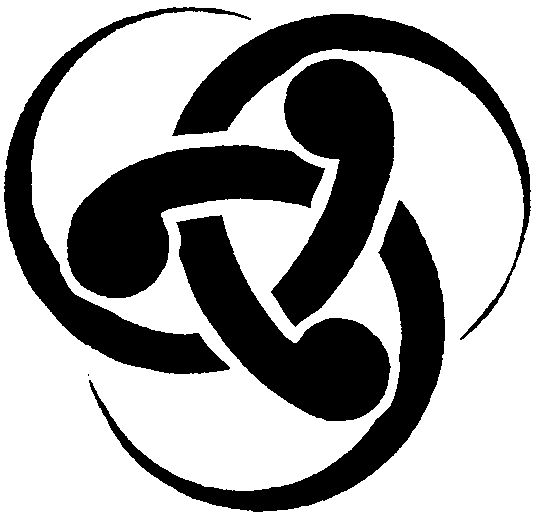|
Sample Student final exam answers 2016 (2016 final exam assignment) Part 3: Model Research Reports |
LITR 4340
|
 |
Austin Green
“Superman
himself is literally an immigrant.”
Coming in to an Immigrant Literature class has opened my eyes to a whole new
layer of literature I had honestly never really spent much time with. I had
experienced some literature about the immigration narrative previously I’m sure,
but I know I would not have been able to recognize it as I can today. I was
having some trouble coming up with a topic to write about before I was struck
with the idea to write about something I have some general knowledge on, but
lean it into something specific for the course and on learning something new. I
was aware of writer Gene Luen Yang before I took this course. I knew he released
a graphic novel titled “American Born Chinese” that dealt with immigration and
based on the success of that (along with his other works), he went on to write
the monthly “Superman” comic book. After learning about the immigrant narrative,
I decided for my research paper to write about the author, as well as read
“American Born Chinese” and see if I can recognize any of the stages of
immigration, or experiences we have discussed in class, in the graphic novel.
Gene Luen Yang was
named one of the 2016 MacArthur "Genius Grant" award recipients. This is a
$625,000 stipend given out to “individuals
who show exceptional creativity in their work and the prospect for still more in
the future” (1). Yang’s biography on the MacArthur site mentions his work on
American Born Chinese: “Yang integrates tropes from American comics, Chinese
folklore, and the Chinese immigrant experience. Three interlocking narratives
contribute to a nuanced depiction of the struggles of adolescent Jin Wang as he
comes to terms with his bicultural identity and attempts to assimilate in
America” (1). This confirmed to me
that this writer was held in high regards, and could comfortably fit in a
literature class syllabus. Looking over the description of his graphic novel
also showed that it would be a good fit for our particular course, as it is
dealing with the immigrant experience, and even uses one of our course terms:
assimilation.
In an interview Yang gave when he began writing the “Superman” comic, I
was able to locate some information about his experience growing up, “As an
immigrant’s kid, I spoke Chinese at home and English at school. I had two
different names. I felt like I was living under two different cultural
expectations. Super heroes are the same way. They have two different names. They
have to operate under two different sets of rules. I’d say that’s the piece of
Superman that I like the best. That’s what resonates with me the most….” (2)
This sounds exactly like the immigrant narratives we have read so far in class,
and before I have even started actually reading his writing yet.
Yang was born in California, a child of two immigrants from Taiwan and
Hong Kong who met after both immigrated to the United States to go to school. He
graduated college with a degree in computer science and worked in that field for
a few years, before switching over to teaching. It was while teaching that a
childhood love of drawing and making comics returned to him. In between creating
and writing comics, he still teaches today; a writing for young adults creative
writing class at Hamline University’s MFA program. He is now married with two
children, and is still living in California.
Even in an interview I was reading with him we see hints of an assimilation into
the dominant culture pop up. The interviewer noted that “Yang
coughs into the sleeve of his gray Gap fleece,” and that “he tries to convince
me that he's boring.” (3) Both the plain style Gap fleece jacket and commenting
that he is nothing out of the ordinary in his day to day life are part of the
dominant culture we have discussed over our own course. The same article also
notes that while he was born in America, his experience growing up resembled
that of an immigrant: “Yang's own life is a springboard for many of his stories.
As a child of immigrants who encouraged him to study hard and avoid risks, Yang
had the quintessential ABC (American Born Chinese) experience.” (3) Yang has
admitted that the experiences shown in “American Born Chinese” are loosely based
on experiences he himself had while in school when he was younger, “Memories of
shame played a big part in shaping the book… He recalls a boy who joined his
elementary school from Taiwan. Yang's teachers wanted him to befriend the new
kid, who gamely talked to Yang in Mandarin for a week. Yang struggled to
respond. "I was really dealing with something inside about me being ashamed of
the culture of my parents." (4)
After
I read his graphic novel “American Born Chinese,” I can confidently say it would
fit in well with any of the other stories we read in our class this semester.
The graphic novel follows two stories throughout, one the story of Jin, a child
born in America to Chinese immigrant parents. The other story follows the tale
of a Monkey King, unhappy with his current standing with the Gods and his
stubbornness to not just accept who he is. Both of these stories, either
straight forward or symbolically, tell the immigrant experience when dealing
with the dominant culture. One of the examples we saw multiple times throughout
the semester was a mention of fast food, or McDonalds specifically. When a new
kid from Taiwan shows up to Jin’s school, they end up becoming friends. Later in
the story, when the friend is telling another student everything the Jin had
done for him, one of the things he mentions is Jin taking him to McDonalds to
try the French fries. In regards to Jin, we see him struggling to assimilate to
a dominant culture where he still feels out of place. Just like everyone else at
his school, he watches Saturday Morning Cartoons every weekend, but instead of
befriending him, the other kids at school make fun of him.
A
really interesting aspect that we did not discuss in class that showed up in the
graphic novel was Jin’s experience with an Asian girl in his class. She was the
only other Asian in their grade, and the other children initially thought they
must be related. When they find out the two are not related, they make jokes
that the two must are already arraigned to be married to each other when they
are older. Jin then goes on to mention that the two of them stay away from each
other. If they spend time with each other, it would make them stand apart from
the rest of their peers even more. Jin even eventually perms his hair in order
to try and look how the “cool kid” in school looks.
On
the other side of the graphic novel we have the Monkey King. I was not familiar
with this part of Chinese folk tale or mythology, but even without prior
knowledge we are shown parallels between Jin and the Monkey King’s experience.
The Monkey King starts out as just a monkey, but works his way above the others
and is eventually raised up as their king. When a dinner party of the Kings and
Gods is called, he happily makes his way to heaven to join the dinner. While
standing in line he sees other Gods and Kings being let in, but when he finally
makes his way to the front they stop him. He was not wearing any shoes. They
tell him they will not let him in without them. He replies that where he is
from, no one wears shoes. They turn him away. When he makes his way back to his
own kingdom, he makes a new rule mandating everyone wear shoes from now on. He
is forcing his people to change to meet the standards of the dominant culture.
I
think it is interesting Yang moved from this type of graphic novel, to now
writing the Superman monthly comic for DC comics. It is interesting that
Superman can be viewed as both having an immigrant experience by some, but also
viewed as a representation of what America can be, or stands for, by others.
After reading this piece of work, I am excited to venture out to find his issues
of Superman. He made his own book that could fit in comfortably with the other
literature we have read so far in class, I wonder if he could do the same with
something similar (in that they are both comics), but also so completely
different with superhero comics. I intend to find out.
Works
Cited:
1.
https://www.macfound.org/fellows/975/
2.
http://www.dccomics.com/blog/2015/07/28/are-you-ready-for-supermans-gene-luen-yang
3.
http://www.sfgate.com/magazine/article/The-Humble-Comic-3214214.php
4.
http://www.npr.org/2008/01/23/18328964/growing-up-chinese-american-graphically



